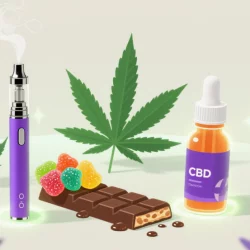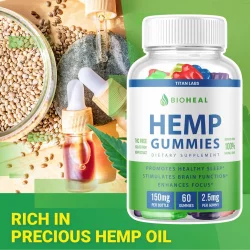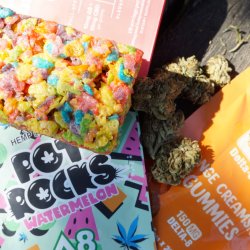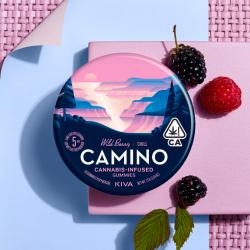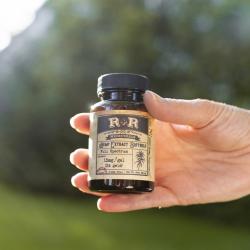Hemp Seed Oil Vs. CBD Oil: What Consumers Need To Know
Since CBD was legalized with the 2018 Farm Bill, more people have taken an interest in the many benefits that hemp could potentially provide. This proverbial "green rush" of intrigue has generated an all-out flooded market of hemp-based products.
Unfortunately, variances in what manufacturers dub their products and what consumers understand to be CBD or hemp oil have bred much confusion. Hemp seed oil and CBD oil are two names that get wrongly attached to two different products on a regular basis. Below, take a look at some of the similarities, differences, and uses for CBD oil and hemp seed oil.

Similarities and Differences Between Hemp Seed Oil and CBD Oil
CBD and hemp seed oil are derived from the same type of plant and have other similarities. Yet, if you take a closer look, the two can have drastic differences in form, function, and use:
- Difference: The two oils are harvested from different parts of the hemp plant. In hemp seed oil production, the seeds of the hemp plant undergo a cold-pressing process. The oil is filtered and packaged for use in other products or sold as-is. CBD oil, on the other hand, is extracted from leaves, stems, stalks, and flowers of the hemp plant. Manufacturers use special extraction methods to harvest CBD from the plant material and then add the CBD to a carrier oil to create CBD oil.
- Similarity: Hemp seed oil and CBD oil are non-intoxicating. Hemp seed oil does not contain THC; CBD oil may only legally contain up to 0.3% THC. Therefore, neither oil is considered to be an intoxicating substance. For this reason, both oils are legal to produce, sell, and possess in all 50 states.
- Difference: Hemp seed oil is recognized for nutritive content, not CBD content. Hemp seed oil typically only contains trace amounts of CBD. Of course, CBD is the most noteworthy ingredient in CBD oil. However, hemp seed oil serves a different type of value where nutritive content is concerned. It's high in fiber; vitamins B, D, and E; and protein. Further, hemp seed oil contains all 11 essential amino acids.
- Similarity: CBD oil and hemp seed oil can be used topically or ingested. While hemp seed oil has been around for a lot longer than CBD oil, both oils can be used in similar ways. Hemp oil might offer benefits when applied topically just as CBD oil can. Ingestion is the most common way to use both types of oil.
Uses for Hemp Seed Oil
Hemp seed oil is primarily recognized as a nutritional product due to its nutritive content. However, it is also commonly incorporated into health and beauty products. Due to the nutritive benefits of hemp oil, it may offer a wealth of health benefits. Hemp seed oil may help to support the following:
- Healthy digestion
- Normal immune response
- Skin conditions
Many beauty products take advantage of hemp seed oil because the included antioxidants have the potential to help support skin. You may find the plant-based oil in products such as cosmetics or skincare lotions. Beyond health and beauty, hemp seed oil is commonly incorporated as an ingredient in manufactured foods.
Uses for CBD Oil
CBD oil is primarily recognized for its proposed therapeutic benefits. While much remains to be properly researched about these supposed benefits, numerous people use CBD to help support:
- Mood
- A sense of calm
- Healthy skin
- Focus
- A good night’s sleep
- Normal joint mobility
- Healthy inflammatory response
CBD oil is found in three primary types: isolate, full-spectrum, and broad-spectrum. Isolate and broad-spectrum usually contain no THC. However, full-spectrum is a term used to describe CBD that contains a full spectrum of other cannabinoids — including THC up to 0.03%.
Hemp Seed Oil and CBD Oil: Two Diverse Products From the Same Plant
While hemp seed oil and CBD oil may be from the same plant, they’re quite different. With a little knowledge about the two and how to decipher the highest-quality hemp or CBD oils, discovering the benefits for yourself is far easier to do.
Author bio: Glory Rae Finnegan is a content strategist and staff editor for Neurogan, a provider of CBD oil, gummies, balms, and more. Finnegan has a bachelor’s degree and a master’s degree in Psychology. She is passionate about human psychology, destigmatizing mental health, animal advocacy, and plant-based living.
More to Read:
Previous Posts:
